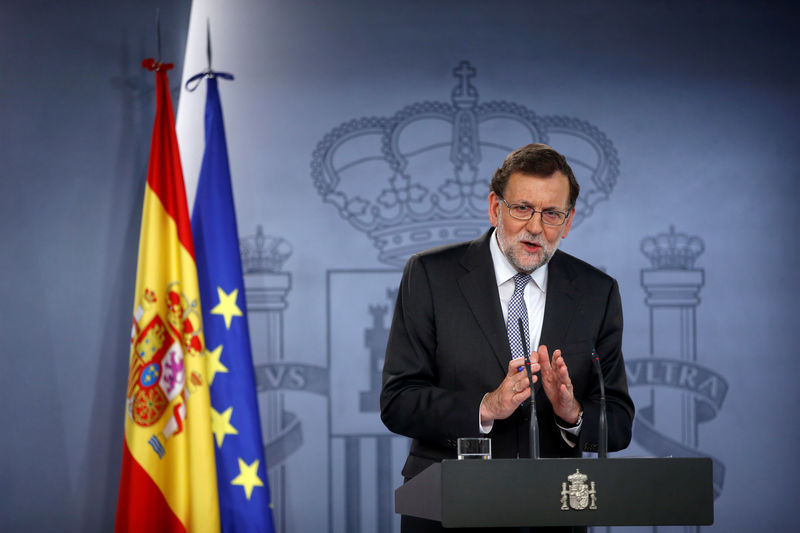MADRID (Reuters) - Spain's acting Prime Minister Mariano Rajoy sought to ease a stand-off with pro-separatist leaders in Catalonia on Wednesday with a promise of further dialogue over issues such as financing.
Pro-secession parties swept to power in the Catalan regional assembly last September and vowed to pave the way for a split from Spain within 18 months, a stance firmly opposed by the central government in Madrid.
Rajoy, whose centre-right People's Party (PP) lost its majority in parliament in an inconclusive December general election, met new Catalan President Carles Puigdemont on Wednesday for the first time since the pro-separatist regional leader was sworn in more than three months ago.
The talks had not been expected to yield a major breakthrough after tensions between Catalonia and the central government were exacerbated following recent spats over the amount of financing that flows to the region.
Rajoy and Puigdemont said in separate news conferences they had agreed to keep up talks, adding that meetings between senior officials to discuss a range of issues, including energy policy and the response to Europe's refugee crisis, were scheduled for the coming days.
But the leaders clashed over Catalonia's demand to hold a binding referendum on secession. The idea of a plebiscite is supported by a majority in the region, polls show, even by some who oppose secession.
Separatist parties won a majority of seats in the Catalan election last year, though they only scored 47 percent of the vote, leaving them without the clear mandate they had sought to bring the independence push to a head.
Puigdemont said there were "big discrepancies" between himself and Rajoy over the independence question, adding the acting prime minister had rejected holding a referendum.
"We will continue to defend Spanish unity," Rajoy said.
Rajoy had last held a formal meeting with Puigdemont's predecessor, Artur Mas, in July 2014. Rival political parties have criticized Rajoy's reluctance to try and foster dialogue.
Northeastern Catalonia, whose beaches and capital city Barcelona are major draws for tourists, accounts for about a fifth of Spain's economy.
The region of 7.5 million people, with its own language, has long harboured an independence movement, though the separatist push grew strongly in recent years amid a deep recession.
The question over how to deal with Catalonia has played an increasingly important role in national politics since an inconclusive national election in December left parties unable to agree on forming a coalition government.

Disagreements over the referendum issue are one of the reasons some natural allies on the left have so far failed to team up.